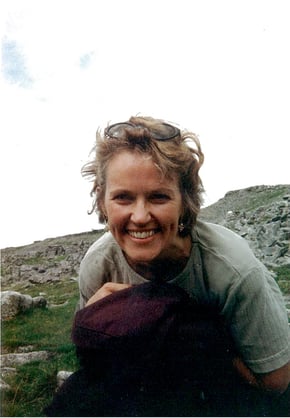When asked to write a newspaper article on what was wrong with the world, G.K. Chesterton purportedly replied: “I am.”
The prevalence of suffering in the world is one of the biggest challenges for believing in an all-good, all-powerful, God . If God exists and is good why does He allow bad things to happen? And if He is all powerful, why doesn’t He just intervene and stop bad things from happening in the world and to us? Why is there poverty, suffering, inequality, even natural disasters? If God is good, wouldn’t He automatically have created a world without such pain and suffering?
Before offering an answer to this question, think back to a time when some event or suffering at the hands of another person happened to you or someone you know. What was your response? At least a few of you may have replied: God allows suffering because He can bring greater good out of it for you and the world because of it. Others may have found solace in the popular adage: what doesn’t kill you makes you stronger.
A different but similar question can be framed within another popular cultural self-help phenomenon: cultivating an attitude of gratitude by focusing on the good things in your life. From health gurus to New York Times best sellers to spiritual directors, it is being hailed as the way to health and happiness. So a question for a subsequent blog post will be: should we be grateful for the difficult or even painful things in our life?
The question before us here pertains to the origin (i.e., cause) of suffering. The answer to this question lies within that mysterious region where God’s providential care (based on a belief that He is all good and loves us unconditionally) interacts dynamically with human freedom.
Stepping aside from any debate surrounding the reality of human freedom, consider what it means to be able to make choices: we do it every day. Some of our choices bring immediate relief and gratification of strongly felt needs and desire; some of them put off the gratification of physical needs to focus on achieving a worthy goal in the future. Some choices might help us or hurt us, or hurt others intentionally or unintentionally. In a myriad of contexts, the variety of choices we make have at their root a universal belief—that this choice will make us happy (in some way). (The kinds and levels of happiness is a discussion for another day, but an enlightening presentation of these ideas can be found here.)
So what is it about our freedom that has anything to do with the existence of suffering in the world? Just a cursory look at the causal chain of events or choices that lead to suffering in our lives and the lives of others, many times can reveal a direct link to suffering and the human ability to make choices.
We have that direct experience, that freedom means the possibility of making “bad” choices. Freedom means ignoring the needs of a family, a community, or a company; freedom means choosing lifestyle options that damage our health, physical and spiritual. Ultimately, freedom means responding to God’s unconditional love and mercy or turning away. It is human freedom that creates many (arguably most) of the imperfections in the world, in our culture, in our societies, communities, work places, families, and in ourselves. To be sure, there is suffering that comes from nature (hurricanes, earthquakes, disease, etc.), but often heroic stories emerge during these disasters that show the power of what can happen when people focus on the needs of others and not just on their own.
Well, then the logical question is: Why did God give such imperfect creatures so much freedom?
For us to grow in love for God, other people, and even ourselves!, we must be free; if we are not free, we are mere robots.
God in His love for His creatures made us in His image with the freedom to love Him or not. We become the person that God intends us to be when we freely choose to love Him in return and do the good that He want to accomplish in our lives and in the world.
Which brings us back to the question asked of Chesterton, but in this case we ‘ll want to ask ourselves: What is right in the world? Hopefully your answer can become: “I am.”

